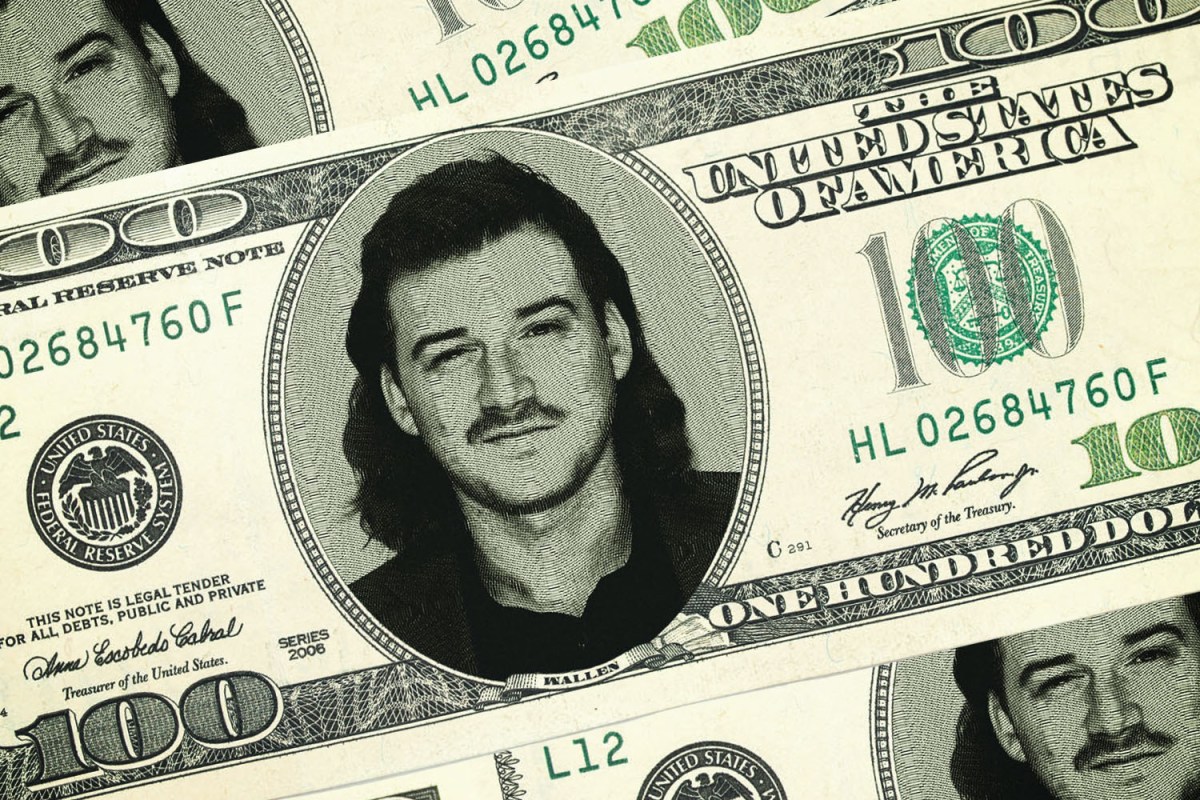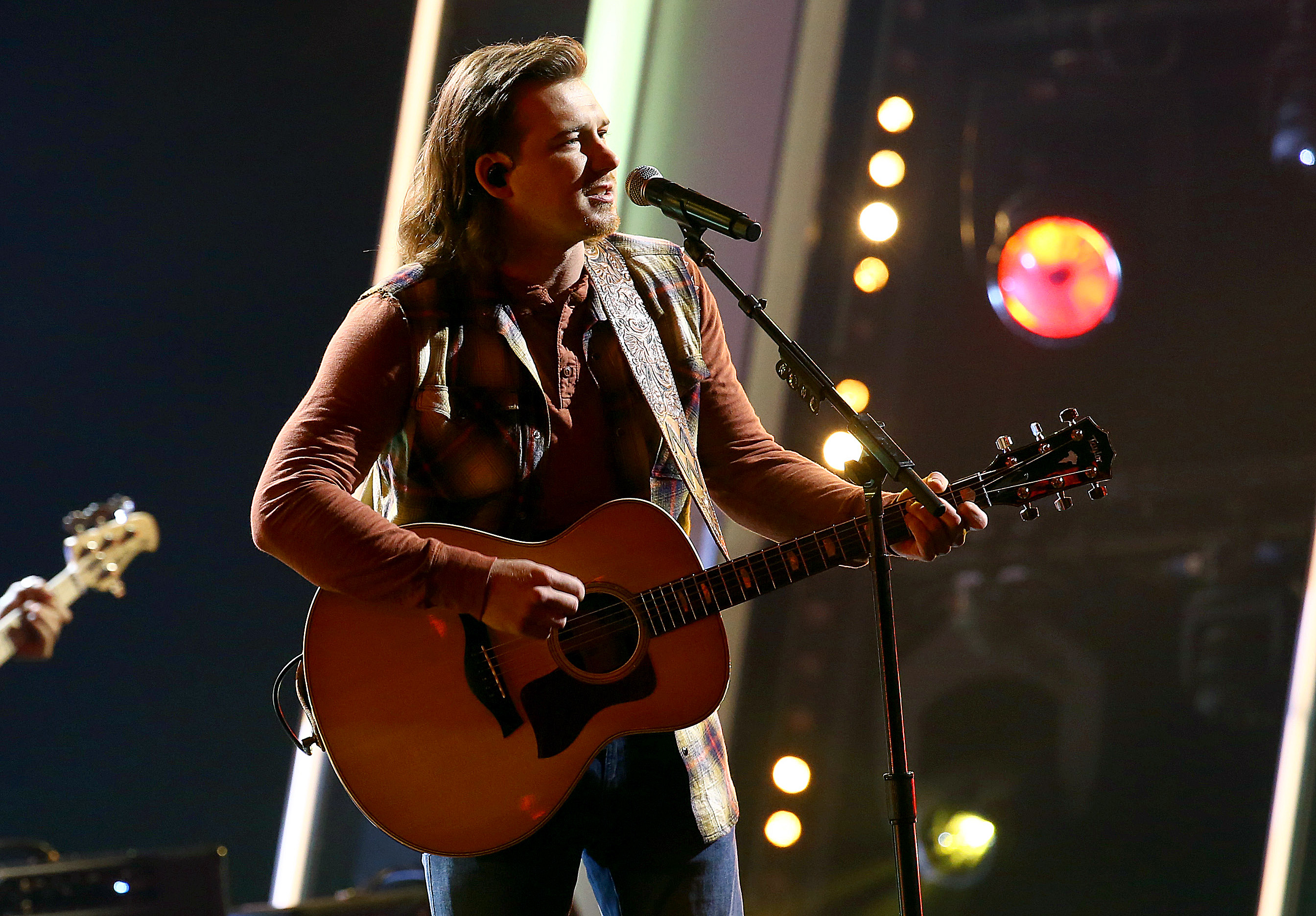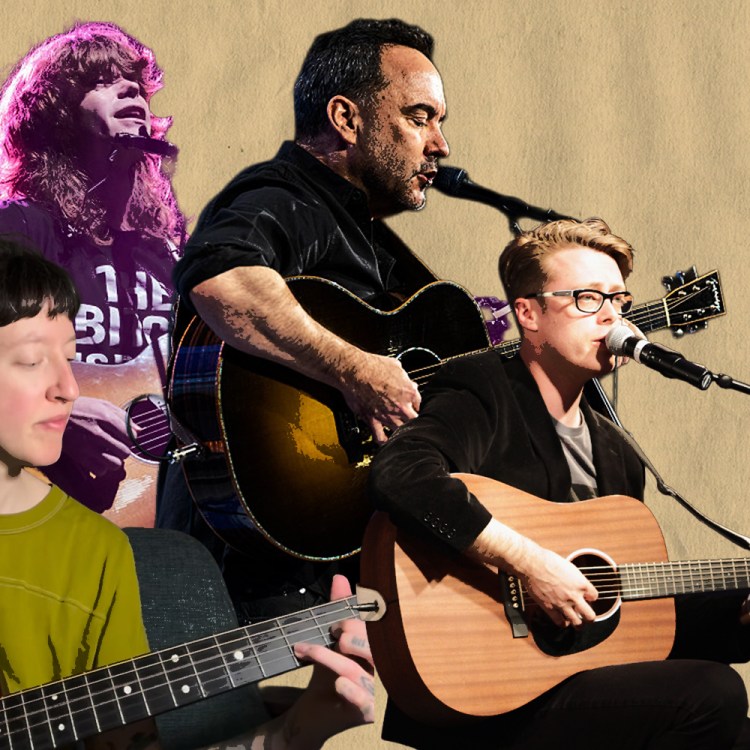Next month marks one year since country singer Morgan Wallen was caught on tape using the n-word, and despite the initial fallout, the musician’s star has only risen, making him a rare example of a celebrity whose career has tangibly benefited from being “canceled.”
The numbers don’t lie: Wallen had the biggest year of his career in 2021 after his fans responded to him being pulled from radio stations and streaming platforms’ curated playlists by buying his album in droves. As Rolling Stone reports, Wallen’s sales increased by 1,220 percent the day after the video of him using the racial slur was released, while his song sales were up 327 percent. His on-demand audio streams were up 6 percent, and his programmed streams increased 16 percent. His album Dangerous: The Double Album shattered records by spending a whopping 10 weeks at No. 1 on Billboard’s 200 chart — the most by any country LP ever — and finished the year as 2021’s top-selling album across all genres, with 3.2 million units sold. His 2018 debut album If I Know Me re-entered that same chart following the video release, climbing all the way up to No. 10 three weeks after it surfaced.
Naturally, given how much money stood to be made off of fans throwing their support (and, naturally, their cash) behind a horrific racial slur, the consequences Wallen faced were fleeting. In the wake of the video, companies like iHeartMedia and Entercom pulled Wallen’s music from hundreds of radio stations, but by May 2021, his radio airplay had more than doubled, and in August of that year, his radio ban was effectively lifted when his single “Sand in My Boots” was added to the rotation by conglomerates like Cumulus, iHeartMedia and Audacy. Pandora lifted its ban on him in May, and Spotify followed suit by reintegrating him into country playlists. Wallen’s massive 2022 arena tour — of which he’d sold out 48 of 54 dates at the time of this publication — was reportedly booked by WME agent Austin Neal despite the fact that WME dropped Wallen as a client after the video of him using the n-word surfaced. (A source told Billboard that Neal is booking Wallen “as a friend” and not as a representative of WME, if you buy that.)
And of course, Wallen has been reinstated by his label Big Loud Records after a four-month “suspension.” (In hindsight, that suspension was nothing more than a PR move that one industry source described as a way to “kick the can down the road.” The label didn’t pull Wallen’s music from streaming services, and artists frequently go years in between album releases, so four months of laying low while profiting off of his album isn’t exactly a harsh punishment.)
But why did being “canceled” make Wallen a star? We know that money talks and no one is ever truly “canceled” as long as they still have the ability to make themselves and other people rich, but Wallen is still one of the only celebrities who has managed to actually become more popular than he previously was after his public scandal. The answer, sadly, is an ugly one: many of Wallen’s fans have chosen to align themselves with him not in spite of his n-word video but because of it. They launched a concerted effort to stream and download his music as much as possible to “protect” him from cancel culture and even put up billboards in support of the singer that read “His Fan’s [sic] Choice: Entertainer of the Year” and urged people to “Support That Boy From ‘East Tennessee!’” It got so bad (and so embarrassing) that eventually Wallen himself asked his fans to stop defending him.
Other celebrities who have found themselves in hot water in recent years have attempted to return to their previous levels of popularity by courting new audiences who might be similarly keen to “protect” them from being canceled. In August, disgraced comedian Louis C.K. kicked off his comeback tour in front of a giant, sarcastic “SORRY” sign, and his material reportedly included a “very involved journey about being in possession of a little girl’s underwear, more pedophilia jokes with an emphasis on the Boy Scouts of America, COVID-19 jokes, jokes about staring into the human asshole, 9/11 jokes, gay jokes, Jew jokes, cancer jokes, a heavy helping of transgender jokes, and a sprinkling of additional race jokes. And tons of sex.” In 2018, he made a few tasteless digs at the expense of the Parkland school shooting survivors.
Once regarded as a singularly creative, almost auteur-like figure on the standup comedy circuit, C.K. appears to be pivoting to the brand of “anti-woke,” “anti-PC” comedy that appeals to people who think that he’s received unfair backlash from the public after admitting to a series of sexual harassment incidents involving women with whom he worked and performed. He’s well aware that a large swath of his former fanbase has abandoned him, so he’s courting the lowest common denominator. (Could that also be why Dave Chappelle has doubled down on his transphobia in response to the uproar over his recent Netflix special?)
Wallen, meanwhile, didn’t even have to try to find a new audience. The good ol’ boy already had a base that skewed conservative, and even prior to his n-word scandal, there were those grumbling about him being “canceled” when he was caught on video partying and violating COVID-19 protocol and subsequently booted from a scheduled Saturday Night Live performance. The Venn diagram of country fans who streamed Wallen’s album on repeat in February 2021 and those who think the Confederate flag is a symbol of “Southern heritage” could probably be confused for a circle if you squint hard enough. And while Wallen made a few half-hearted attempts to prove he’s not racist, he hasn’t exactly been tripping over himself to shed the reputation; he reportedly has donated significantly less money than he promised to Black charities and blew off a planned meeting with the NAACP. He knows that any genuine effort to change will only turn his fans off.
But one year on from the incident, more and more mainstream organizations that claim to be anti-racist have welcomed Wallen back into the fold. The Grand Ole Opry — which tweeted “Racism is real. It is unacceptable. And it has no place at the Grand Ole Opry” in June 2020 in the wake of the George Floyd protests — caught heat last weekend for allowing Wallen to perform. As Jason Isbell (who has donated all of his royalties from Wallen’s cover of his song “Cover Me Up” to the NAACP) wrote, “Last night @opry you had a choice — either upset one guy and his ‘team’ or break the hearts of a legion of aspiring Black country artists. You chose wrong and I’m real sad for a lot of my friends today. Not surprised though. Just sad.”
Isbell wasn’t the only one to call out the Opry for hosting Wallen, but as of this writing, the Nashville institution has not responded to any requests for comment. They know they don’t have to, because Wallen’s army of fans will have their back and alienating them means losing out on massive amounts of cash. They’ve done the math, and they know that Wallen’s not simply “back” — he never left.
This article appeared in an InsideHook newsletter. Sign up for free to get more on travel, wellness, style, drinking, and culture.
























